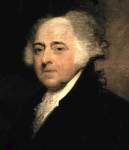Parts 1, 2, 3, 4, 5, 6, 7, 8, 9, 10, 11, 12, 13
The Quock Walker muddle continues. We know Walker won his personal freedom. His lawyers might have argued that the new constitution of 1780 outlawed slavery in Massachusetts, but that doesn’t seem to have decided the case in Walker’s favor. Nathaniel Jennison argued that the court ruled that the constitution had enacted a general emancipation in his petition to the legislature for redress, but he might have done so out of misunderstanding, ignorance, or as a strategy for best recouping his losses. Yet we still have zero slaves in the Bay State come 1790. Something happened to cause that, if not Walker’s verdict alone.
Indeed, we can say with confidence that Walker did not free Massachusetts. We know because even after the verdict, the papers carried advertisements for human beings and we have surviving bills of sale, like this one:
Gentle readers, if you struggle to read it then know that I did too. Two friends helped me puzzle it out, in the sense of helping where I picked out a few words and had the general gist but they actually read it for me. Thanks to Cassidy’s and Bobby’s kindness, I have a transcription:
Boston November 15th, 1784. I have this day sold to Mr. Samuel Pith of Boston a Negro Boy named Poppy Nine years old for and in the full consideration of thirty-five pounds [???] for which I promise to warrant and defend against the lawful blame of all and every person on knowing and whatever as witness my hand.
Samuel Pith bought Poppy a full year after Walker had his freedom and the transaction has no hint of insecurity. Nor does it carry any provision that he deserves his freedom at a certain age. Except for the date and location, the bill would fit right in with those crafted decades later and hundreds of miles to the southwest. Had slavery undergone a general collapse as soon as Walker won his case, or even at the end of his protracted legal ordeal, we would expect just the opposite.
Walker’s, and Elizabeth Freeman’s, cases did not bring about instant abolition. Nor did either probably owe their freedom chiefly to John Adams’ Declaration of Rights. The newspapers of the era reported on the court session that heard Walker’s cases and made no remark about a grand historical ruling, or anything about him at all. People kept buying and selling other people. Two weeks after Walker had his day in court, a correspondent calling himself Mentor wrote the Evening-Post to rally the voters against any representative who dared support an “execrable retrospective bill” then before the House concerning slavery, which would have declared slavery never legal in Massachusetts. The bill passed the House and got no farther, but his example shows that Bay Staters understood slavery as under some kind of significant attack.


You must be logged in to post a comment.